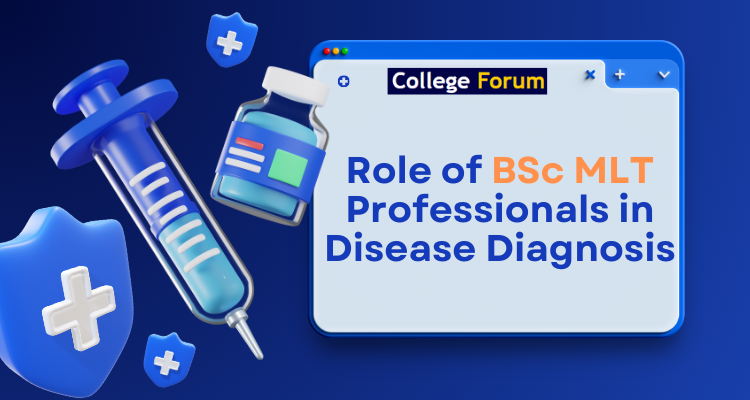The role of Bachelor of Science in Medical Laboratory Technology (BSc MLT) professionals in disease diagnosis is pivotal to the healthcare system. These highly skilled individuals contribute significantly to the accurate identification and understanding of various medical conditions. Here’s an exploration of their essential role:
- Sample Analysis: BSc MLT professionals are responsible for analyzing various types of biological samples, including blood, urine, tissues, and other body fluids. Through meticulous examination, they identify abnormalities or deviations from normal values that may indicate the presence of a disease.
- Diagnostic Testing: Utilizing a range of sophisticated laboratory techniques and equipment, BSc MLT graduates conduct diagnostic tests. These tests help confirm or rule out specific diseases, enabling healthcare providers to make informed decisions about patient care.
- Clinical Chemistry: BSc MLT professionals play a crucial role in clinical chemistry, analyzing chemical components within the body. By studying biomarkers and assessing levels of substances like enzymes, electrolytes, and hormones, they aid in diagnosing conditions such as diabetes, kidney disorders, and hormonal imbalances.
- Hematology: Specializing in the study of blood, BSc MLT professionals perform hematological tests to identify blood disorders, anemia, clotting disorders, and various infections. These findings provide vital information for physicians to tailor appropriate treatment plans.
- Microbiology: In the field of microbiology, BSc MLT professionals identify and characterize bacteria, viruses, fungi, and parasites. Their work is instrumental in diagnosing infectious diseases, guiding the selection of suitable antimicrobial treatments.
- Immunology and Serology: BSc MLT graduates examine the immune system’s response by conducting tests related to antibodies and antigens. This aids in diagnosing autoimmune disorders, allergies, and infectious diseases.
- Molecular Diagnostics: With advancements in technology, BSc MLT professionals are increasingly involved in molecular diagnostics, which examines DNA, RNA, and proteins at the molecular level. This allows for more precise identification of genetic disorders and certain types of cancers.
- Collaboration with Healthcare Team: BSc MLT professionals collaborate closely with physicians, pathologists, and other healthcare professionals. Their findings contribute critical information to the overall diagnostic process, facilitating comprehensive and accurate patient care.
- Quality Assurance: Ensuring the accuracy and reliability of diagnostic results is a key responsibility. BSc MLT professionals implement quality control measures and adhere to strict laboratory protocols to maintain high standards in disease diagnosis.







